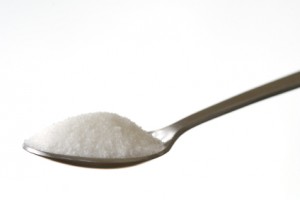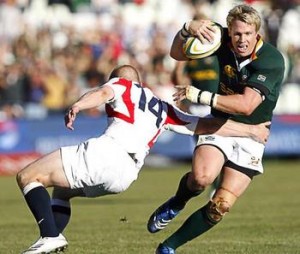 Some of you may remember a study published in September of last year in the Clinical Journal of Sports Medicine (CJSM) regarding the effect of creatine of DHT levels in South African rugby players over three weeks. If you didn’t read the actual study then I’d at least hope that you read the article here on ST discussing it. There has been some discussion via the CJSM between Professor Gary Green of the David Geffen School of Medicine at UCLA and the authors of the original study. In this two-part article I’ll show you, with quotes, the stances of each party from recent comments made.
Some of you may remember a study published in September of last year in the Clinical Journal of Sports Medicine (CJSM) regarding the effect of creatine of DHT levels in South African rugby players over three weeks. If you didn’t read the actual study then I’d at least hope that you read the article here on ST discussing it. There has been some discussion via the CJSM between Professor Gary Green of the David Geffen School of Medicine at UCLA and the authors of the original study. In this two-part article I’ll show you, with quotes, the stances of each party from recent comments made.
Green’s first question is in regards to the source of the materials used in the study.
“In their methods section, they do not mention the source of the supplement given or whether the supplement was independently tested before it was given to the subjects. If the latter was not done, then the results of the study are in serious doubt.”
Green also adds:
“…there has been an increase in contamination of dietary supplements with a variety of compounds. This has included pharmaceuticals such as testosterone, benzodiazepines, powerful diuretics, and potent stimulants. Several studies have been conducted demonstrating this phenomenon, and supplement companies frequently obtain their raw materials from countries such as China where the manufacturing regulations are lax.”
Green goes on to say that he believes the supplements used in testing need to be thoroughly tested before being used in a study and even goes as far as to recommend that the CJSM rejects any study undertaken that does not undertake this thorough analysis. While I concur with his thoughts wholeheartedly, this is addressed in the response from the original authors in part two of this article. 
In addition to suggesting that the authors need to declare whether they have a financial interest in the results of the study showing creatine to raise DHT, Green also requests that the timing of the blood testing be stated.
“In addition, the authors do not list the time of day that the study was conducted. Many hormones, including testosterone, have variations throughout the day and unless the subjects were all tested at the same time of day, this could alter the results.”
Lastly, Green questions the control used in the study.
“Typically, placebo refers to an inactive substance or preparation used as a control in an experiment or test to determine the effectiveness of a medicinal drug. I would argue that 50 grams of glucose is not inactive and certainly can affect exercise. If the authors more properly were using the glucose as a control for the creatine, then I would have expected them to use 25 g/d as a loading dose and for maintenance instead of a 50 g loading dose and 30g/d during maintenance.”
Green is quite clearly as mystified as us to the results of the study in question, especially given that this connection between creatine and DHT has never been shown in any previous studies (and believe me, creatine has been thoroughly studied.)
In part two of this article which i will post tomorrow, I will show you the response from the original authors of the study.
Source: Green G. Creatine supplementation and DHT:T ratio in male rugby players. Clin J Sport Med. 2010 May;20(3):220; author reply 220-2.
